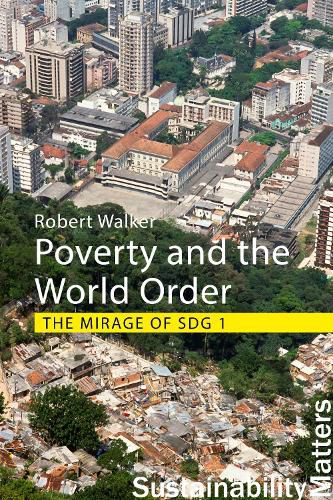Readings Newsletter
Become a Readings Member to make your shopping experience even easier.
Sign in or sign up for free!
You’re not far away from qualifying for FREE standard shipping within Australia
You’ve qualified for FREE standard shipping within Australia
The cart is loading…






SDG1 is designed, among other things, to eradicate extreme income poverty and to halve multi-dimensional poverty by 2030. How realistic is that goal? Robert Walker provides a critical examination of the promise and reality of SDG1.
The author’s message is stark: there is little chance of success. Although the need for a collective and coordinated response is clear, global and national systems of governance are currently incapable of an adequate response. While the critique is largely negative, the book seeks to identify reforms necessary to meaningfully increase the likelihood of meeting SDG1’s goals. These include reshaping international institutions so that they give greater voice to governments in the developing world, facilitating enhanced modes of participatory governance, and increasing democratic accountability at a global level. Evidence is drawn throughout from a systematic review of international best practice supplemented by more detailed strategic case-studies, including China.
$9.00 standard shipping within Australia
FREE standard shipping within Australia for orders over $100.00
Express & International shipping calculated at checkout
SDG1 is designed, among other things, to eradicate extreme income poverty and to halve multi-dimensional poverty by 2030. How realistic is that goal? Robert Walker provides a critical examination of the promise and reality of SDG1.
The author’s message is stark: there is little chance of success. Although the need for a collective and coordinated response is clear, global and national systems of governance are currently incapable of an adequate response. While the critique is largely negative, the book seeks to identify reforms necessary to meaningfully increase the likelihood of meeting SDG1’s goals. These include reshaping international institutions so that they give greater voice to governments in the developing world, facilitating enhanced modes of participatory governance, and increasing democratic accountability at a global level. Evidence is drawn throughout from a systematic review of international best practice supplemented by more detailed strategic case-studies, including China.